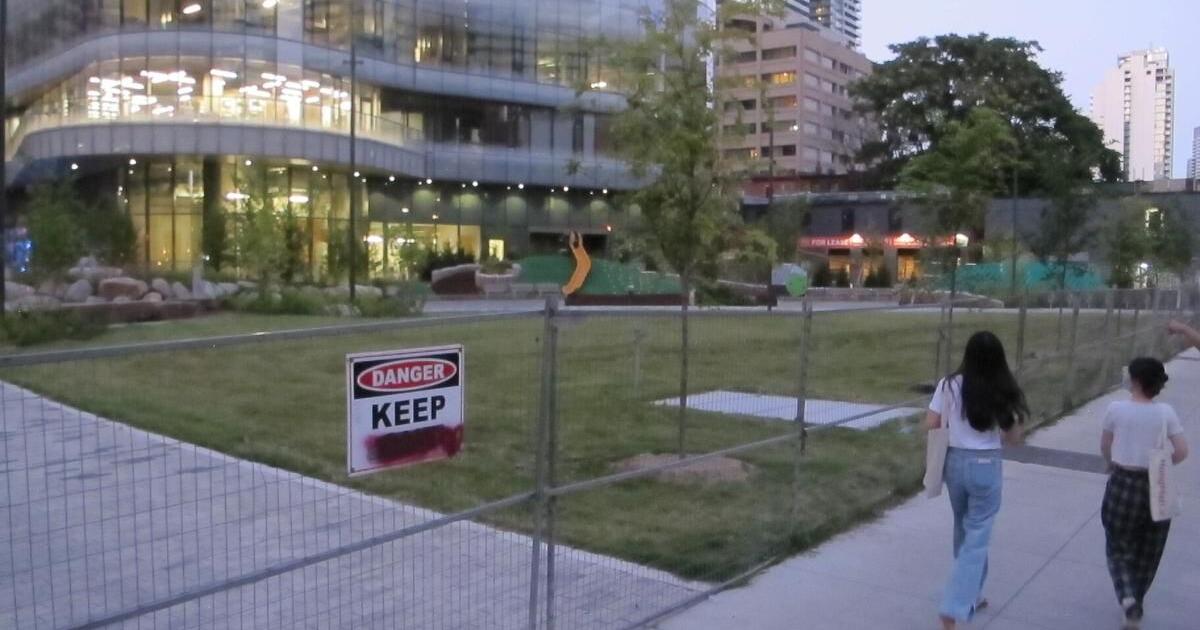Towered
Superstar
It is; I agree.
Some of that is self-inflicted too.
But it does need to be said, that some of the reorganizations imposed on parks over the years, along with budget cuts/freezes as far back as amalgamation......have also left Parks hard pressed to execute properly.
I don't want to go too far into the weeds on a tangent, but I'll offer a couple of observations
1) There used to be a lot more empowered parks supervisors, (direct operational management) and they used to have a lot more year-round, properly trained support staff who could do things.
Typically a Parks supervisor had 1 or 2 forepeople who usually had carpentry skills, could handle a backhoe, paint and do minor handy work of all sorts, they also had direct control of their seasonal staff who mowed lawns, did weeds,
handled garbage/litter removal and odd jobs.
Today there are many fewer parks supervisors, with much larger parks, disconnecting them from direct day-to-day performance.
Most no longer have forepeople at all.
2)
Parks centralized all carpentry staff
Parks creating 'flying teams' for litter removal and lawn mowing that handle lots of different parks over much larger areas.
Parks lost control of waste removal - hence our ugly garbage cans when that was shifted to waste management.
Parks has many fewer lawn mowers, despite more parks; because
a) Parks cut one mowing per year from the cycle
b) Parks lost responsibility for mowing the boulevards on City Roads (all contracted out now)
c) Because Parks has lost so many functions, Yards have been consolidated; meaning operations equipment is now further from the parks it serves (increased dead head time) and there is less equipment and fewer personnel
Most Parks no longer have staff based out of them; there are a few notable exceptions for signature parks like High Park, and Thomson Park etc etc. But most park washrooms buildings use to have small offices in them where seasonal staff were based day to day, now most of those are locked and empty.
3) When horticulture was centralized (flower bed and formal landscape maintenance by professional gardeners) the staff was also cut back, and many planting beds were eliminated or converted to perennials.
Additionally, with centralization staff are less connected to local displays and upkeep issues.
Horticulture can't afford to maintain the beds they have.
Many/most beds have lost 'seasonal' displays outside of summer. University Avenue, for instance used to get an early spring display with pansies/tulips then a summer display, then a fall one. Today, its one and done.
4) Staff turnover is high in many parts of the department despite comparatively decent wages. There is too much box-checking, bureaucracy, and too many people stuck doing boring, repetitive work (lawn mowing only, can't do garbage, flowers or benches) and that drives attrition, which means a lack of experience.
5) Many staff in management/planning positions lack the requisite experience/training for their jobs. They often have university in a largely unrelated degrees (say environmental studies) which doesn't actually
teach you forestry, wetland restoration, horticulture, lawn maintenance, landscape architecture, etc etc.
6) Due to contracting out the City has lost a lot of flexibility, the City, for instance used to have a lot more working greenhouses in which they grew their own plants/flowers. Today, they have far fewer. This is the sort
of thing where staff used to be in a position to fix things in-house; we need to fix a bench, send the foreperson; we need to weed that flower bed, send horticulture and it was easy, just a phone call or a direct order from a
Parks Supervisor........today, its paperwork, delays and 'sorry, we have no spare people or plants or aren't allowed to do that'
****
Whoops, I got on a bit of rant...............LOL.....
Sorry, back on topic!
Perhaps electing a progressive mayor who isn't low-property-tax-obsessed could be a solution
